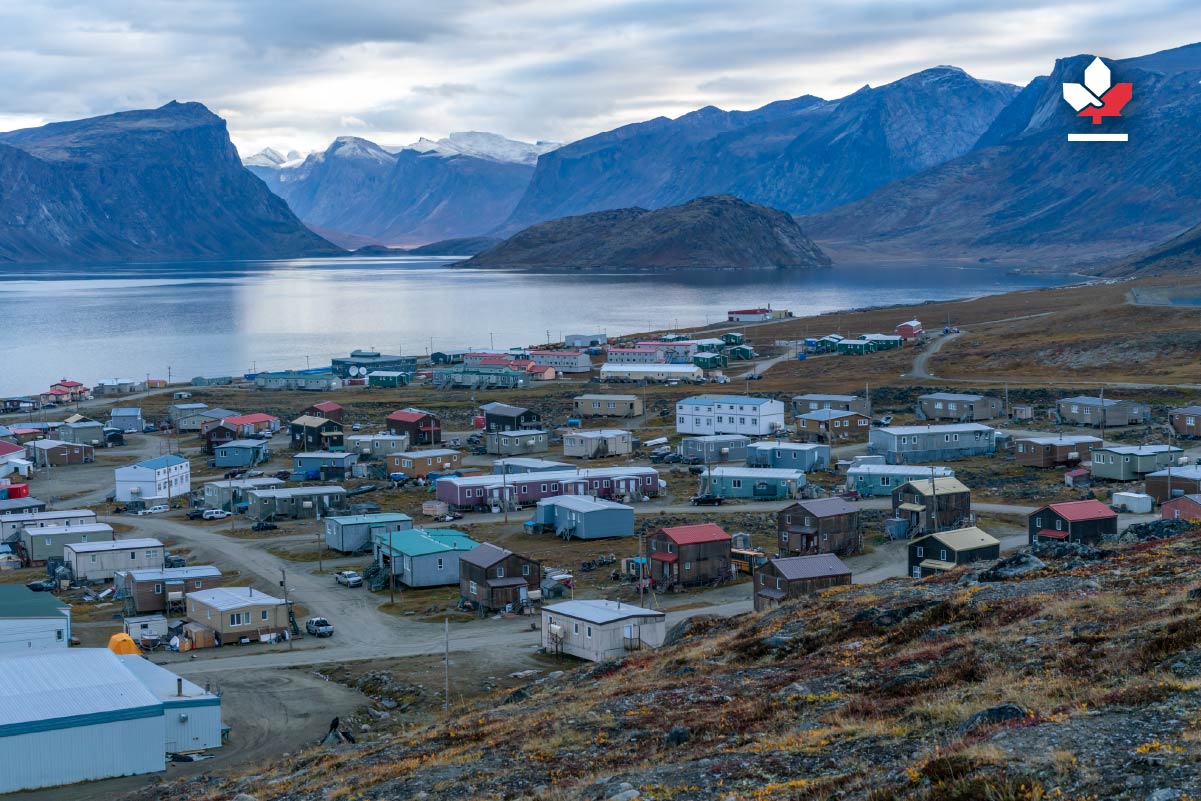Why Rural Canada is Ideal For Skilled Foreign Workers
May 31, 2024
|
Canada, with its sprawling landscapes, vibrant cities brimming with multiculturalism, and welcoming immigration policies, has consistently ranked high on the list of dream destinations for skilled workers around the globe. While bustling metropolises like Toronto and Vancouver often capture the most attention, a hidden gem awaits in rural Canada. Here, amidst rolling farmlands, quaint towns steeped in charm, and breathtaking natural beauty, skilled foreign workers can discover a unique and fulfilling life experience.
If you want to immigrate to Canada and live in Rural Canada specifically, learn why moving away from the big city life is ideal for skilled foreign workers.
Beyond Canada’s Glittering Cities

Major Canadian cities undoubtedly offer exciting opportunities and a fast-paced lifestyle. However, rural Canada presents a compelling alternative for those seeking a different perspective. Imagine a world where your commute is scenic through nature, your weekends are spent exploring pristine wilderness, and your community fosters a strong sense of belonging. This is the reality for many in rural Canada.
Why You Should Consider Moving to Rural Canada

You, a skilled foreign worker, should seriously consider rural Canada as your new home when you immigrate to Canada.
Increased Labor Market Demands
Many rural regions across Canada face labor shortages. This presents a significant advantage for skilled immigrants keen for jobs in rural Canada. With high demand for qualified professionals in various sectors, from healthcare and education to skilled trades and agriculture, finding a job that utilizes your skills and experience becomes significantly easier.
Unlike major cities where job competition can be fierce, rural areas often need more qualified applicants. This means your resume and skills are more likely to stand out, potentially leading to a faster job search and a smoother transition into the Canadian workforce.
Competitive Salaries and Lower Costs
While salaries in rural Canada might not always match those in major cities, the lower cost of living often translates to a higher standard of living. Housing costs, transportation expenses, and everyday necessities are generally more affordable in rural areas. This allows you to stretch your income from a job in rural Canada further, potentially leading to greater financial security and the ability to save for the future.
A Welcoming and Supportive Community
Rural communities are known for their close-knit nature and strong sense of belonging. Newcomers are often embraced with open arms and offered support as they adjust to their new life. Local organizations and community events provide opportunities to integrate, build friendships, and feel like a valued member of society.
A Breath of Fresh Air: A Different Pace of Life
Rural Canada offers a welcome escape from the hustle and bustle of city life. Here, you can experience a slower pace, with more time to connect with nature, pursue hobbies, and enjoy a healthier lifestyle. This shift in pace can significantly improve your overall well-being and create a better work-life balance.
Unparalleled Natural Beauty
Canada's natural beauty is legendary, and rural areas offer front-row seats to this magnificence. The opportunities for outdoor recreation are endless, from majestic mountains and sparkling lakes to vast forests and rolling plains. Whether you enjoy hiking, camping, fishing, or simply spending time in nature, rural Canada caters to every outdoor enthusiast.
A Diverse and Inclusive Society
Canada is a multicultural nation that celebrates diversity. Rural communities, perhaps not as demographically diverse as major cities, are still welcoming and inclusive. As a skilled immigrant, you will find opportunities to share your culture and traditions, enriching the local community while embracing the Canadian way of life.
Growth and Development
Rural Canada presents exciting opportunities for professional growth. Smaller communities often require individuals to wear multiple hats and take on broader responsibilities. This can lead to a more diverse skill set and faster career advancement for ambitious individuals.
A Safe Environment
Compared to urban centers, rural communities experience significantly fewer crimes. This translates to a lower likelihood of encountering violent acts, property theft, or vandalism. Imagine feeling comfortable leaving your doors unlocked or your children playing outside without constant worry.
Rural communities are renowned for their tight-knit nature. Neighbors often know each other well, fostering a natural support system. This sense of community watchfulness can deter crime and provide a layer of protection. So you can expect a watchful eye on your home when you are away or a helping hand in case of need.
The Ideal Path to Rural Canada Immigration
Two of the most popular pathways Canada offers skilled workers seeking permanent residency in rural Canada are the Rural and Northern Immigration Pilot (RNIP) and the Express Entry System.
Canada's Rural and Northern Immigration Pilot (RNIP)
The Rural and Northern Immigration Pilot is a targeted program designed to attract skilled workers to designated rural communities across Canada that are facing labor shortages. To qualify for the RNIP, you will need a confirmed job offer from a participating employer in a designated community. This program offers a streamlined application process with potentially shorter wait times for permanent residency compared to Express Entry. Additionally, the RNIP often provides access to settlement services and integration initiatives to help newcomers adjust to their new life in rural Canada.
Learn more about the RNIP.
The Express Entry System
Express Entry is a point-based system that manages applications for three federal economic immigration programs: the Federal Skilled Worker Program (FSWP), the Canadian Experience Class (CEC), and the Federal Skilled Trades Program (FSTP). Applicants for these programs are awarded points based on a variety of factors, including work experience, education level, language proficiency (English or French), age, and adaptability. Those with the highest scores are issued Invitations to Apply (ITAs) for permanent residency in Canada.
Important Considerations When Moving to Rural Canada

While the RNIP presents a compelling path to residency in Canada, a successful transition requires careful consideration. Before leaping toward rural Canada, here is a breakdown of key factors to explore.
The Climate
Research the average temperatures, precipitation patterns, and seasonal variations in your chosen community. Be prepared for potential adjustments, whether embracing harsh winters or adapting to a drier climate.
Amenities and Services
Rural communities often have a different pace of life and may have fewer amenities compared to cities. Evaluate the availability of essential services like healthcare, grocery stores, banking, and internet access. Consider your tolerance for potentially longer travel distances for specialized services.
Social and Cultural Life
Rural communities often foster a strong sense of community, but the social scene might be less diverse compared to urban centers. Research local events, clubs, or activities that align with your interests to ensure you can build a fulfilling social life.
Proximity to Urban Centers
Consider the distance to larger towns or cities. While rural living offers a peaceful escape, access to certain amenities or cultural events might require occasional trips. Evaluate the travel time and potential transportation options that suit your needs.
Pace of Life
Rural Canada offers a slower pace compared to bustling cities. Evaluate whether you thrive in a quieter environment or require the constant stimulation of urban life.
Outdoor Activities
Rural landscapes provide ample opportunities for outdoor recreation. However, if your interests lie primarily in museums, theatre, or nightlife, you might need to adjust your expectations.
Personal Needs and Interests
Consider your personal needs and interests. Do you require access to specific religious institutions, specialized stores, or cultural events? Ensure the rural community can accommodate your lifestyle preferences.
Research Job Market
While the RNIP requires a job offer, explore the overall job market in your chosen community. This can provide insights into future career opportunities and potential for professional growth.
Connect With Locals
Before or after your move, try to connect with community residents. This can offer valuable firsthand information and help you feel more prepared for the transition.
Embrace the Differences
Rural Canada offers a unique and rewarding lifestyle. Be open to embracing the differences and actively participate in your new community.
Remember: A successful move to rural Canada hinges on thorough research, realistic expectations, and a willingness to adapt. By carefully considering these factors, you can ensure a smooth transition and build a fulfilling life in your new rural Canadian home.
FAQs
Will the RNIP Become a Permanent Program?
Yes. Earlier this year, the Honorable Marc Miller, Minister of Immigration, Refugees, and Citizenship, announced that IRCC was working on establishing a permanent rural immigration program.
I Have My Heart Set on a particular Rural Canadian Province. Which Immigration Pathway is Best for me?
It is a good idea to consider Canada's Provincial Nominee Program. The following provinces have PNP streams you can apply to:
